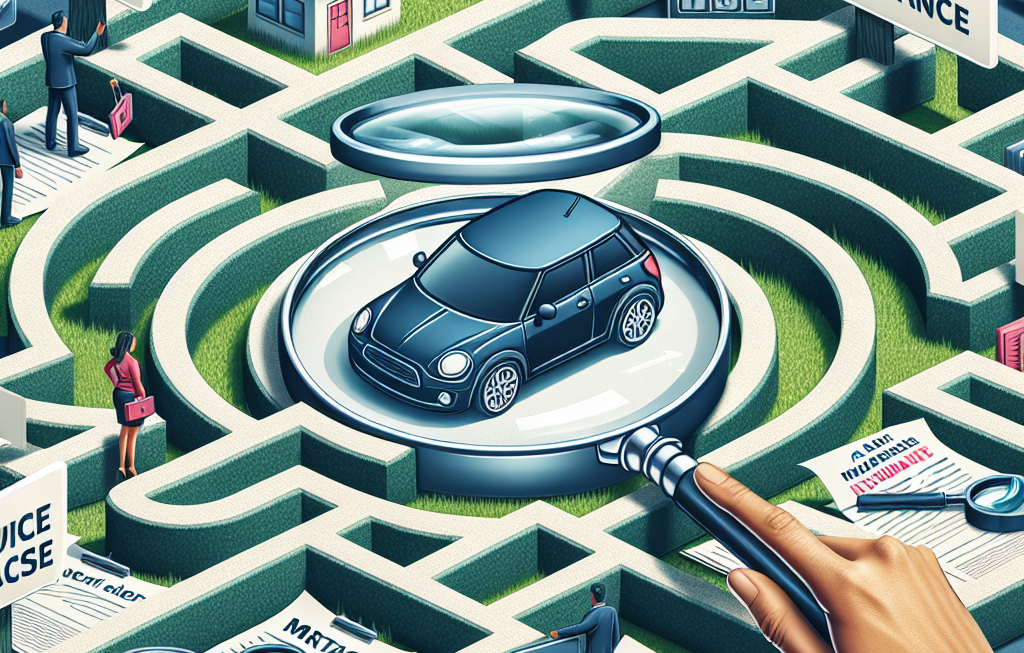Introduction
When it comes to protecting your assets, automobile insurance is an essential component of your financial plan. However, finding the best automobile insurance that suits your mortgage and job can be a daunting task. In this blog post, we will discuss the key factors to consider when selecting the right automobile insurance policy for your specific needs.
Understanding Your Coverage Needs
Before you start shopping for automobile insurance, it is important to assess your coverage needs. Consider factors such as the value of your car, your driving habits, and any potential risks associated with your job that may affect your insurance needs.
Assessing the Value of Your Car
The value of your car will play a significant role in determining the type and level of coverage you need. If you have a new or expensive vehicle, you may want to consider comprehensive coverage to protect against damages from accidents, theft, or natural disasters.
Evaluating Your Driving Habits
Your driving habits can also impact your insurance needs. If you have a long daily commute or frequently drive in high-traffic areas, you may want to consider additional coverage for potential accidents or damage.
Considering Job-Related Risks
If your job requires frequent travel or driving as part of your duties, you may need specialized coverage to protect you in case of accidents while on the job. Make sure to discuss your job-related risks with your insurance provider to ensure you have adequate coverage.
Researching Insurance Options
Once you have a clear understanding of your coverage needs, it is time to research insurance options. Start by comparing quotes from multiple insurance providers to find the best rates and coverage options that fit your budget.
Getting Multiple Quotes
Getting quotes from multiple insurance providers is essential to ensure you are getting the best value for your money. Be sure to compare rates, coverage options, and any discounts that may be available to you based on your mortgage and job.
Considering Bundling Options
Some insurance providers offer discounts for bundling multiple policies, such as automobile and homeowners insurance. Consider bundling your insurance policies with the same provider to save money and simplify your coverage needs.
Reading Reviews and Ratings
Before making a decision, take the time to read reviews and ratings of insurance providers to get a sense of their customer service and claims process. Look for providers with high ratings and positive customer feedback to ensure a smooth insurance experience.
Understanding Policy Limits and Deductibles
When comparing insurance options, pay close attention to policy limits and deductibles. Policy limits determine the maximum amount your insurance provider will pay for a claim, while deductibles are the out-of-pocket expenses you must pay before your coverage kicks in.
Choosing the Right Policy Limits
Make sure to choose policy limits that adequately protect your assets and liabilities. Consider factors such as your car’s value, your income level, and any potential risks associated with your job to determine the right policy limits for your needs.
Setting a Realistic Deductible
Consider your financial situation when setting your deductible. A higher deductible can lower your premiums but may require you to pay more out of pocket in case of a claim. Choose a deductible that you can comfortably afford in case of an accident.
Reviewing Specialized Coverage Options
Depending on your job and mortgage situation, you may need specialized coverage options to ensure full protection. Consider discussing the following coverage options with your insurance provider to tailor your policy to your specific needs.
Rental Car Reimbursement
If your job requires regular travel or if your car is in the shop for repairs, rental car reimbursement coverage can help cover the cost of renting a temporary vehicle. This coverage can be essential for ensuring you have transportation while your car is out of commission.
Gap Insurance
For homeowners who have a mortgage on their car, gap insurance can provide additional protection in case of a total loss. Gap insurance covers the difference between the actual cash value of your car and the remaining balance on your loan, ensuring you are not left with a financial burden in case of a theft or accident.
Conclusion
Finding the best automobile insurance for your mortgage and job requires careful consideration of your coverage needs, research of insurance options, and understanding of policy limits and deductibles. By assessing your specific requirements and selecting the right coverage options, you can protect your assets and liabilities with confidence.




